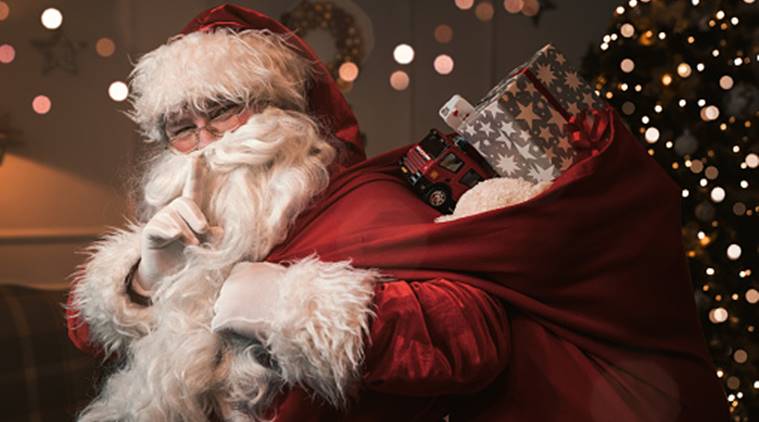Christmas 2019: Do we really need to lie to kids about Santa Claus?

Christmas 2019: Children believe their parents and therefore in Santa Claus, especially when they see evidence in the form of presents the next morning or in some parts of the world, half-eaten cookies too.
Christmas 2019: There comes a stage where children realise that Santa Claus, who they believed was showering gifts on them for years, is not real after all. Studies show that most children find out the truth by the age of seven or eight. Parents know this is inevitable and yet they perpetuate their child’s favourite Santa fantasy for as long as possible. Why?
Whether you participate in elaborate Christmas festivities or not, it is almost customary for most families to acquaint children with the myth of Santa Claus. Children believe their parents and therefore in Santa Claus, especially when they see evidence in the form of presents the next morning or in some parts of the world, half-eaten cookies too.
Lying to kids about Santa
Dr Debmita Dutta, parenting consultant and founder, What Parents Ask, suggested how the Santa Claus myth is part of a parent’s way of introducing children to a fantastic world of fairies and monsters. And through their association with good and evil, parents can teach kids moral values. It is also a way of passing down tradition and rituals, Santa being the essence of Christmas. “It has been happening for generations. As parents, we have clearly gained something from it and want our children to have the magical experience too,” she told Express Parenting.
How can lying about Santa affect kids?
Fantasies are a healthy and normal part of a child’s growth. It opens up avenues for imagination, which is essential for a child’s psychological and cognitive development. According to Sally Goddard Blythe, child psychologist and author of The Genius of Natural Childhood: Secrets of Thriving Children, imagination helps children develop problem-solving skills and encourages new ways of perceiving things, which is important for critical thinking.
“Fantasies are healthy, as long as it is limited to good intentions. Young children spend a lot of their time pretending, even when they know something is not real. So they play with toy vegetables or pour water in a cup and pretend it is tea. It is the same with Santa Claus,” explained Dr Dutta. She also pointed out how parents can put the Santa fantasy to good use. “Suppose you tell the child that he or she needs to write a letter to Santa. That could be a good way to hone their creative skills and improve vocabulary. It helps them convey their thoughts,” she remarked.
Also Read| 9 natural DIY Christmas crafts for kids
Professor of psychology at The University of Texas Jacqueline Woolley also wrote in an article how believing in Santa helps children exercise “deductive reasoning abilities and their use of evidence”. The process of deducing the truth about Santa happens through testimonies and decoding of visible proofs. They begin to question more and more which promotes scientific thinking.
Finally, when children realise they have busted the myth, they will feel empowered. “Many children feel clever when they see the reality and can expose your trick,” Dr Dutta said.
But herein lies the twist.
While parents may continue with the Christmas lie in good spirit, kids can sometimes read it as breach of trust. It is like the times when you promise to take your child out if they complete a task but then you get busy in something. Kids tend to assume their parents and other adults will tell them the truth. And finding what they thought was a first-hand experience with Santa was all just made up by their parents can taint their natural trust in a person.
Also Read| Does your child lie? Here’s how you can deal with it
According to psychology professor Robert Feldman, University of Massachusetts, dishonesty is something children gradually grow into. And the reason is that it is their parents who first show them how through their own behaviour.
What is harmful is taking advantage of children’s trust to manipulate them. “Parents sometimes tell children they would get a good gift only if they follow their instructions or behave well and so on. This is harmful for children. Kids associate gifts with your love for them and that should be unconditional. We need to avoid controlling children in the name of playing out this fantasy. We must give children the opportunity to be good without pushing our agenda,” advised Dr Dutta.
For all the latest Parenting News, download Indian Express App
Source: Read Full Article



